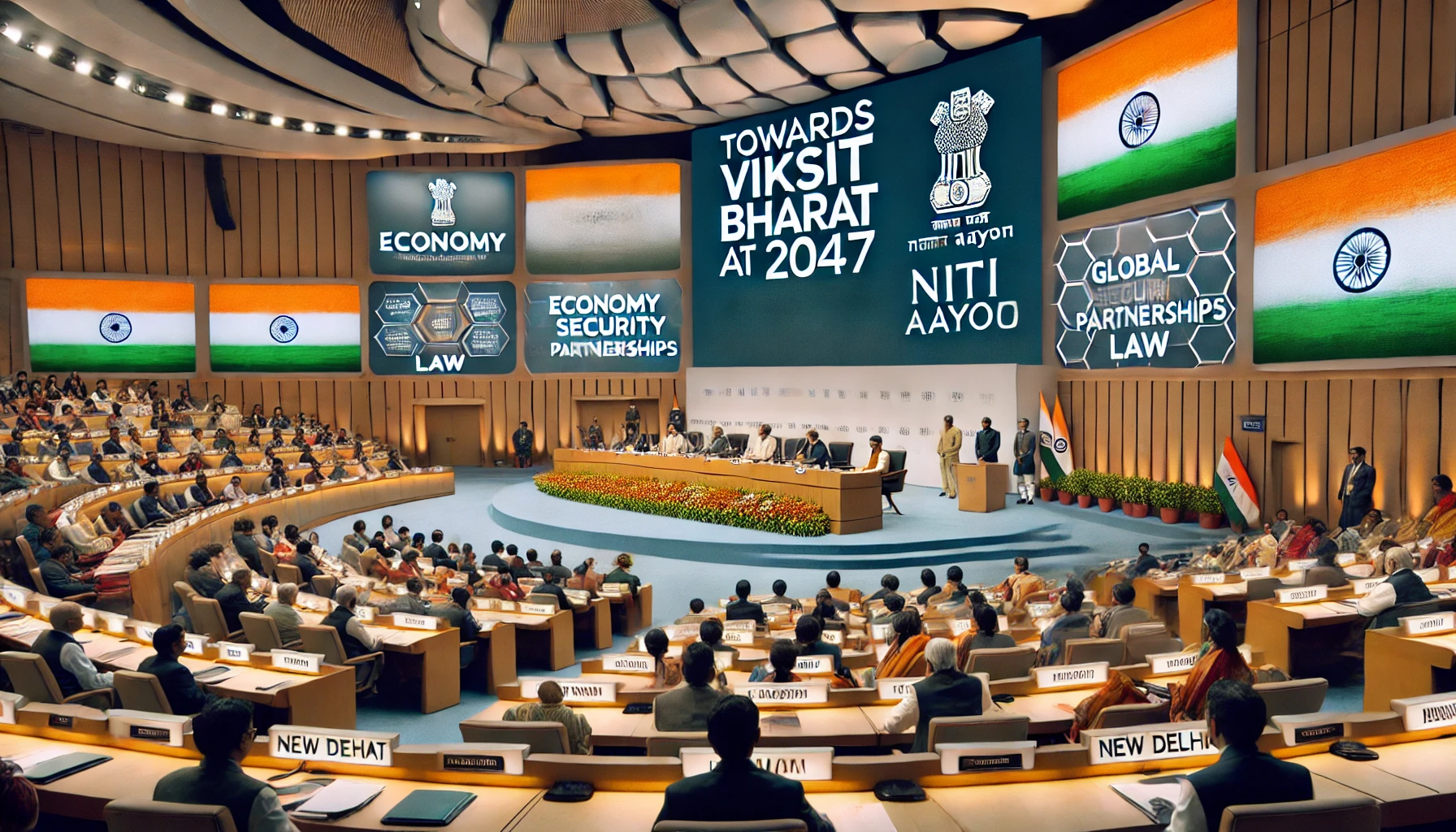NITI Aayog Hosts Conclave on 'Towards Viksit Bharat @ 2047' Boosting Economy, National Security, and Global Partnerships
Key themes included enhancing sovereign credit ratings, ensuring energy security, and securing access to critical raw materials.

- Country:
- India
NITI Aayog hosted a landmark conclave titled “Towards Viksit Bharat @ 2047: Strengthening Economy, National Security, Global Partnerships, and Law” at Sushma Swaraj Bhawan, New Delhi. The event brought together key policymakers, industry leaders, and academic experts to chart India's development trajectory over the next two decades.
The conclave was graced by the Vice Chairman of NITI Aayog, Members of NITI Aayog, and the CEO of NITI Aayog. Keynote addresses were delivered by the Chief Economic Advisor to the Government of India and the Secretary of the Ministry of Defence, setting the tone for a day of intensive discussions, panel sessions, and strategic deliberations.
Economic Growth and Global Competitiveness by 2047
A standout session focused on India’s pathway to becoming a global economic powerhouse. Experts from policy, academia, and industry emphasized regulatory reforms, innovation-driven growth, and infrastructure expansion as pillars of progress. The panel underscored the necessity for increased private sector investments in research and development, fiscal consolidation, and deeper integration into global supply chains.
Key themes included enhancing sovereign credit ratings, ensuring energy security, and securing access to critical raw materials. Panelists agreed that leveraging India’s demographic dividend through education, skill development, and strategic infrastructure investments is crucial. The consensus was that bold regulatory reforms, sustainable energy strategies, and proactive leadership in global trade are imperative to achieving the Viksit Bharat vision by 2047.
Strategic Partnerships for Development
This session delved into India’s diplomatic strategies to strengthen alliances across the Global South and North. Experts highlighted India’s resilience in navigating geopolitical trade disruptions and its leadership role in the renewable energy sector. The discussion emphasized international cooperation in securing critical mineral resources, along with the potential benefits of trade liberalization, tariff reductions, and technological collaborations.
The role of digital public infrastructure in fostering multilateral and bilateral partnerships was spotlighted, while legal reforms were identified as pivotal in attracting foreign investment and improving the ease of doing business. These elements were deemed essential for enhancing India's position in global trade.
Supply Chain Resilience and National Defence
Panelists explored solutions to mitigate supply chain disruptions and the significance of public-private partnerships in bolstering national defence. Discussions focused on creating a robust logistical supply chain to support both military and civilian operations. A key takeaway was distinguishing between the Just-in-Time model prevalent in civil supply chains and the Just-in-Case model critical for military logistics.
Experts examined the role of legal frameworks in ensuring efficient procurement processes, stocking, and supply chain management. Recommendations were made to refine procurement procedures, enhance public-private collaborations, and streamline organizational structures to improve defence supply chains. Cybersecurity was identified as a vital component in safeguarding supply chain integrity and maintaining operational efficiency.
The conclave provided profound insights into India’s economic future, strategic partnerships, and national security readiness. The discussions reinforced India’s commitment to sustainable and inclusive growth, aligning with the Prime Minister’s vision of a “Viksit Bharat” by 2047. As India positions itself as a global leader, the key takeaways from this conclave will guide policy and strategic decisions in the years to come.
- READ MORE ON:
- Viksit Bharat @ 2047
- NITI Aayog










